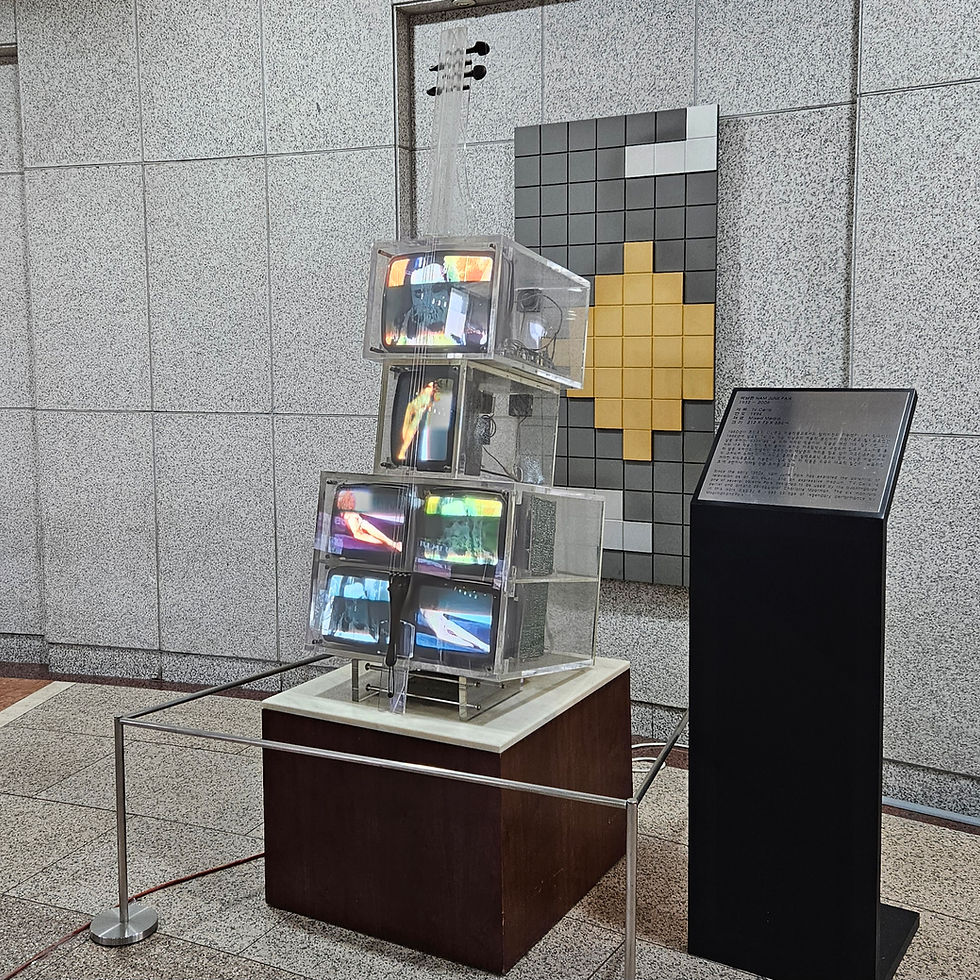We Are What They Grow Beyond... Addendum
- Stefan Greenfield-Casas

- Dec 26, 2023
- 3 min read
Long time no update!
I had initially meant to have a post dedicated to my summer trip to Japan, but... yeah, I don't have a particular reason I didn't finish it. Oops. And the Fall term has been me juggling teaching and applying for jobs. Hopefully there will be some good news on that front soon... Thumbs pressed.
But I recently had two small publications come out! The first is a review of the Final Fantasy VII Remake Orchestral Arrangement Album (try saying that three times fast). The second is an essay published in Musicology Now that I co-wrote with James Denis Mc Glynn on Star Wars Visions. While I'm pretty happy with how it turned out, we did a ton of editing on it, including cutting some sections entirely. This included my analysis of one of my favorite shorts from the series: Triggerfish’s “Aau’s Song.” In retrospect, it was perhaps a bit too out of left field (as were the politics I brought in right beforehand) for the rest of the essay, so I agreed to cutting them... because I figured I could post them here :) I like this practice of leaving some draft thoughts here. Anyways, here's an insider look at what the ending initially was. Enjoy!
***
Visions, especially Volume 2, allowed not only for these stories to be told, but to allow those who have not always been in positions of power to tell their own stories. Each country was allowed to bring and share its own culture, history, and mythos—both the good (here we might think of its music and art) and the bad (e.g., Britain’s imperial subjugation of India, the diamond industry’s callous exploitation of Africa and its natural wealth, and the US’s brutal treatment of its BIPOC population). Star Wars has always been political—in this sense, it should come as no surprise it is willing to share these stories. What the genre of science fiction affords, however, is the chance for a reparative and optimistic telling of what can be, even if drawing on the pains of an unjust and inequitable history of exploitation.
Visions of the Future and Lessons from the Past
To conclude, we wish to draw attention to one recurrent theme across Visions: the shorts' shared emphasis on the children and young peoples' capacity to enact meaningful change in the world. Children are our future—they represent the potential of humanity not only in who they will become, but also in what they will create and what changes they will bring into being.
While this narrative thread is present in many of the shorts, it is best represented in the final short of Volume 2: Triggerfish’s “Aau’s Song” (dir. Nadia Darries and Daniel Clarke). The claymation short focuses on the eponymous Aau, a Korban child whose singing can alter and stabilize the Sith-tainted kyber crystals that her people mine, and which are then used to create lightsabers. Be this as it may, the systems in place and legacies of what has come before (read: the adults and their infrastructures, both political and commercial) do not trust her to sing to (and with) the crystals—not even her own father initially.

Aau singing to the kyber crystals.
It is telling that it is a child’s voice (Dineo Du Toit’s for Aau’s singing) that is used for her song—untrained, unrefined, untuned; in other words, as pure and innocent a voice as can be, one that listens without prejudice and that challenges the status quo with tender naïvety. In this voice and in this wordless song (composed by Markus Wormstorm) we hear a hopeful message: listen for the changes the next generation will bring, even if we do not yet have the words to describe it.



Comments